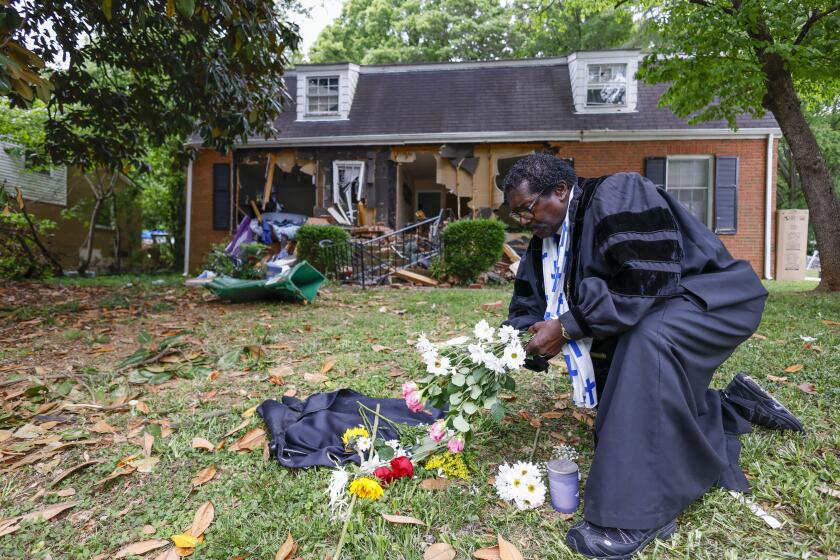Flamenco is now a dying art in Spain
MADRID -- Master guitar-maker Arcangel Fernandez has stopped taking orders. He’s been at it for 50 years, fashioning delicate wooden shells into lacquered beauties, and at age 75 he has enough work for the rest of his life.
However, the aficionados buying his coveted $13,000 instruments are not local musicians but Japanese collectors -- an alarming sign that the art form considered so intrinsically Spanish is declining in its birthplace and is now more popular among foreigners.
A decade ago, Madrid boasted 20 flamenco taverns featuring this unique kind of entertainment -- the furious, rhythmic tapping of a dancer’s heels, the thundering chords of a classical guitar, a singer’s soulful lament, all that contagious hand-clapping. Now only four or five remain, all packed with tourists and too expensive for the average Spaniard.
At the city’s most hallowed flamenco school, half the students are from abroad.
“These days flamenco is more valued among foreigners,” Fernandez said in his guitar shop, part woodworking sanctuary, part meeting place for guitar buffs.
Silvia Calado, a critic for the website www.flamenco-world.com, said flamenco is not quite in a state of crisis. But although it has built up great prestige abroad, in Spain it is low on creativity and has failed to reach out to new audiences.
“Flamenco is distancing itself from young people, and they are the ones who can keep it alive,” Calado said.
Flamenco classes would have lots of empty places were it not for foreign students, and half of the hits on her Web page come from abroad, Calado said. The Grammy Awards give out a prize for flamenco music, but the Spanish media barely bother to cover the awards, telecast from Los Angeles.
“It is disgraceful,” Calado said.
Fifteen years ago, Fernandez, who makes an average of eight guitars a year, decided to work exclusively for foreigners.
“Foreigners pay you better and they give you fewer problems than Spaniards,” Fernandez said. “Customers come to pick up the guitar and you never see them again. They are always happy with the product. For them, flamenco is a very serious thing.”
At the famed Amor de Dios School, teacher Inmaculada Ortega said flamenco has serious box-office problems and dance companies receive little support from the government.
Ortega, 36, said she has to go as far as South Africa or the United States -- sometimes for months -- to make decent money, while in Spain she must give classes and sew flamenco costumes to make ends meet.
“Before, a flamenco dancer was held in high social esteem, had glamour. Now a dancer goes unnoticed,” she said. “In Spain, you can only barely get by on flamenco.”
More to Read
Start your day right
Sign up for Essential California for news, features and recommendations from the L.A. Times and beyond in your inbox six days a week.
You may occasionally receive promotional content from the Los Angeles Times.






